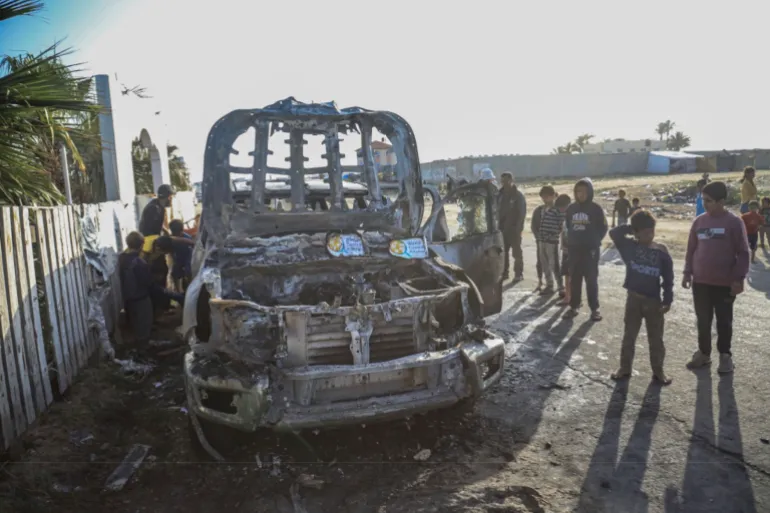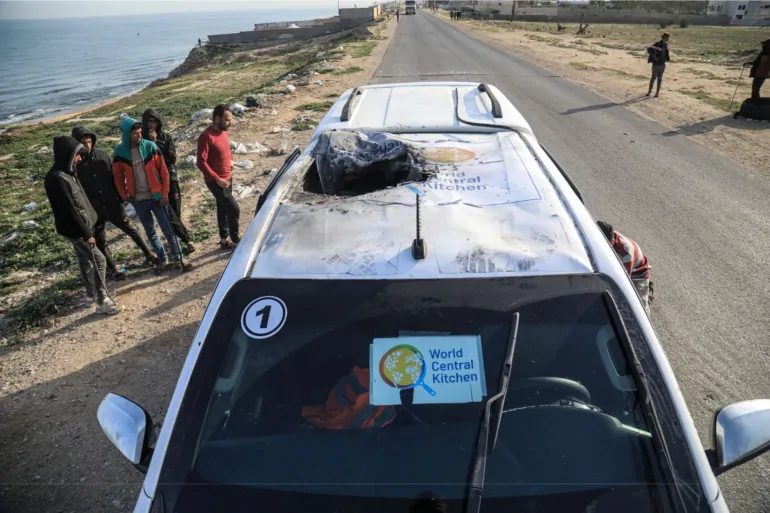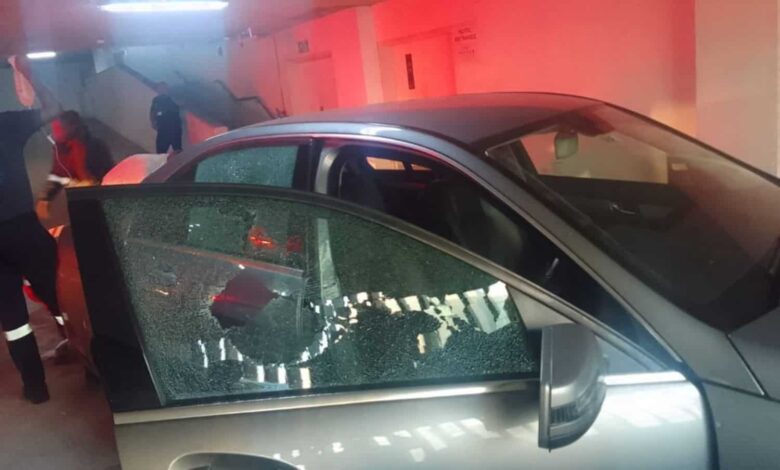Al Jazeera concludes that the Israeli army intentionally targeted the World Central Kitchen convoy with three consecutive attacks.
An investigation by Al Jazeera’s Sanad Verification Agency has concluded that the Israeli army deliberately targeted a World Central Kitchen (WCK) aid convoy, resulting in the deaths of seven individuals. The attacks occurred on Monday night in the central Gaza Strip, with journalists witnessing Israeli shelling targeting a vehicle on Rashid Street at 10:43 pm (19:43 GMT), leading to casualties. Corresponding testimonies from displaced individuals confirmed multiple bombings between 11:00 and 11:30 pm (20:00 – 20:30 GMT).
Israeli Prime Minister Benjamin Netanyahu admitted that the attack was executed by Israeli forces, attributing it to unintentional collateral damage in the midst of warfare. However, the Sanad investigation, drawing from open-source information, witness testimonies, and on-site images, established a clear timeline and geographical context, affirming the deliberate nature of the attacks.
WCK, in a statement issued on Tuesday, revealed that despite coordinating movements with the Israeli army, the convoy was hit as its personnel were departing the Deir el-Balah warehouse after delivering 100 tonnes of food aid. The convoy consisted of three vehicles, two armored and one unarmored, each clearly marked as belonging to WCK. The shelling targeted these vehicles sequentially along the route to Rashid Street, resulting in the deaths of seven relief workers, including Palestinian driver Saif Abu Taha from Rafah.
Hasan al-Shorbagi, a displaced Palestinian living near the bombing site, described the initial car being struck by a projectile, completely burning it. Subsequently, wounded individuals from the first targeted vehicle were transferred to another armored vehicle to expedite their transportation.

The investigation also revealed that the second and third vehicles were targeted approximately 800 meters and 1.6 kilometers away from the first, respectively, based on their locations after being bombed. Analysis of images from the bombing sites indicated that the vehicles were struck from the air, with projectiles entering from the top and exiting through the bottom.
Despite the Israeli army’s admission of responsibility and characterization of the incident as unintentional, global condemnation ensued. WCK emphasized that its team was traveling in a “deconflicted” area at the time and called on Israel to cease indiscriminate killings in Gaza. In response, WCK suspended its operations in the region.






